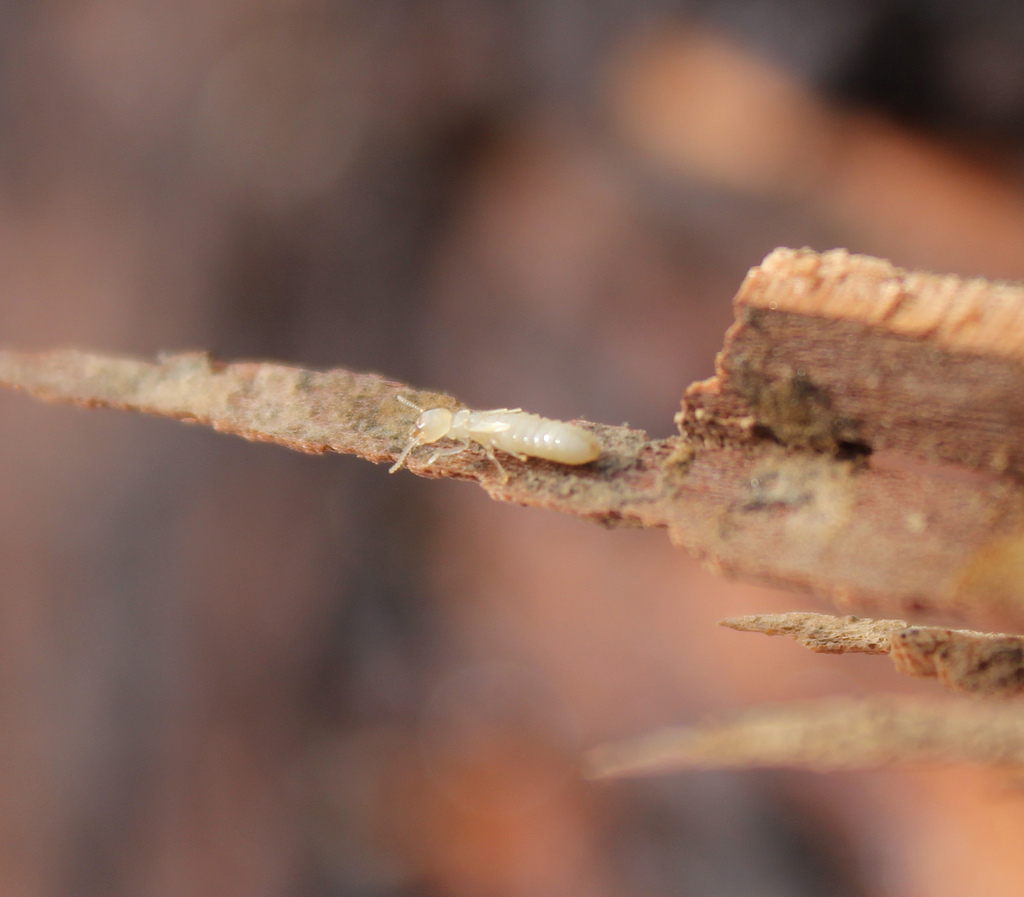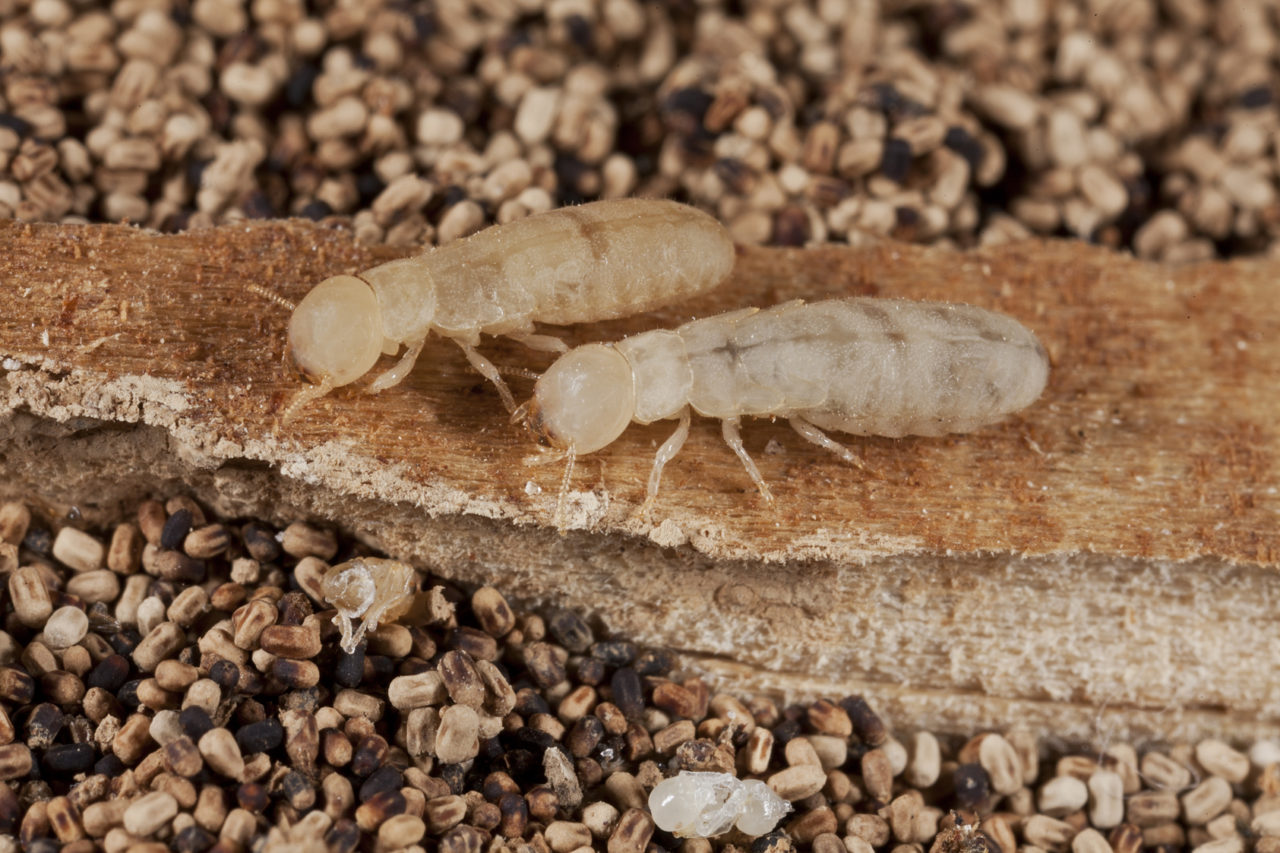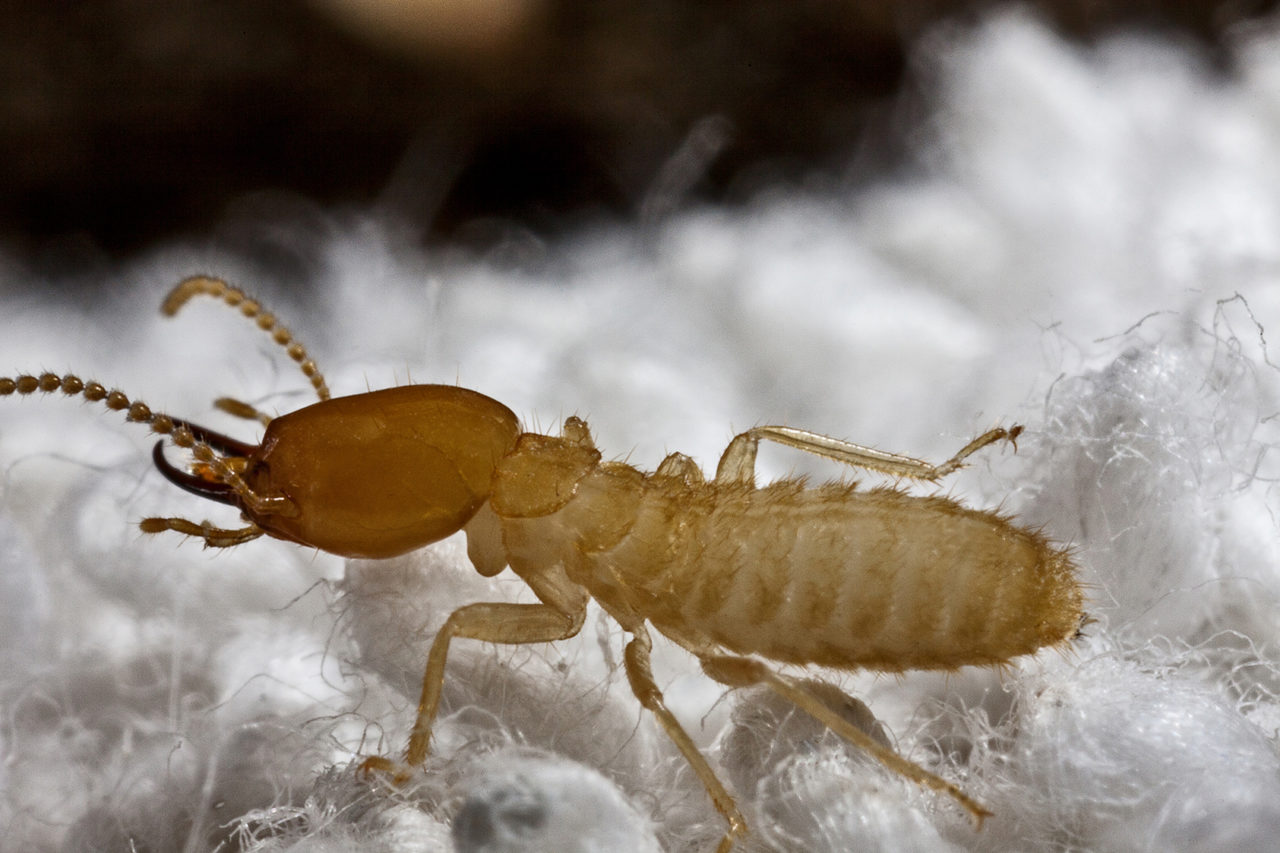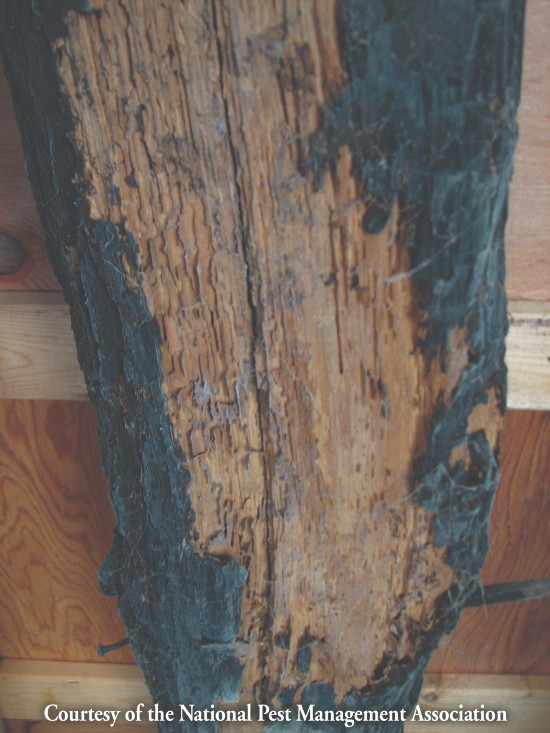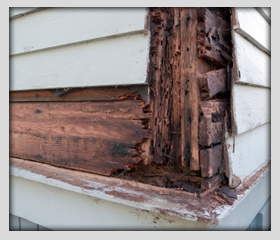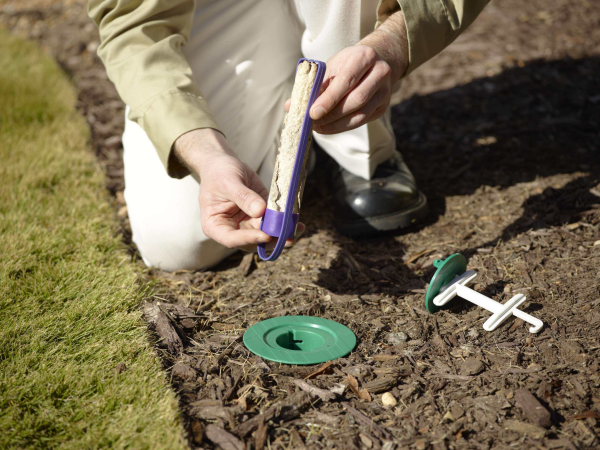Updated: August 12, 2020
To help promote awareness, Franklin Pest Solutions joins the National Pest Management Association (NPMA) in participating in Termite Awareness Week March 15-21 2015.
Termites in Indiana
Because termite damage is not covered under homeowner’s insurance, it’s important to learn about the risks, the options you have for treatment for termites, and basic facts about termites in Indiana. Please feel free to post questions you may have in the comments of this blog post. Or, even better, contact one of our experts today to get answers right away!
Are there different kinds of termites?
Yes, the four major kinds of termites in the United States are dampwood, drywood, Formosan and subterranean. The kind that is most common in our region here in Indiana and Kentucky are Subterranean termites.
- Subterranean termites are by far the most destructive termite species. They live in underground colonies with as many as two million members. Subterranean termites use their scissor-like jaws to eat wood 24 hours a day, seven days a week.
- Dampwood termites commonly live in heavily forested areas of the country as they prefer wood with a high moisture content. They are normally larger than other termite species.
- Drywood termites, much more rare in the United States, prefer extremely dry wood like that found in attic framing. They live in colonies of up to 2,500 members and usually swarm on sunny, warm days after a sudden rise in temperature.
- Formosan termites, also known as “super termites,” are an extremely aggressive termite species orginially from China. They live in huge underground colonies, with an average of 350,000 workers and build intricate mud nests in the ground.
What are some signs of a termite infestation?
Depending on where you live, termite swarms may be visible in the early spring. Termite swarms can sometimes be confused with flying ants. Telltale signs of a termite infestation include soft, decayed wood in the home, mud tubes in the interior or exterior of your home (often near the foundation), and darkening or blistering of wood structures. For a deeper look at flying termites, check out my blog article here.
How much damage do termites cause?
Termites eat 24 hours a day, 7 days a week, meaning damage to wood in and around a structure can happen very quickly. In fact, the NPMA estimates that termites cause $5 billion in property damage each year. That’s more than tornoadoes, earthquakes, and fires combined! The good news is that termites can be controlled with the partnership of a trained pest professional. And there are a couple of options when it comes to treatment for termites.
What can a homeowner do to prevent termites?
There are many steps a homeowner can take to help prevent termites from infesting their property. Most importantly, a homeowner should eliminate or reduce moisture in and around their home, which termites need to thrive.
- Divert water away from the home’s foundation by installing properly functioning downspouts, gutters and splash blocks.
- Reduce humidity in crawl spaces with proper ventilation.
- Trim vines, hedges and other vegetation to prevent them from blocking vents.
- Remove old form boards, grade stakes, tree trunks and roots near a building, as they may attract termites.
- In addition, maintain an 18-inch gap between soil and any wood portions of your home.
- Finally, routinely inspect the foundation of the home for signs of termite damage.
Does homeowners insurance cover damage?
Typically, homeowner’s insurance does not cover termite damage. Most pest infestations and accompanying damage are considered maintenance issues by insurance carriers.
How difficult are termites to treat?
Termites cannot be effectively treated by a homeowner on their own. Pest control professionals have the training, expertise and technology to eliminate a termite infestation. We offer convetional liquid treatments for termites as well as a completely GREEN baiting system.
How are termites controlled?
A licensed pest control professional will be able to recommend a course of action depending on many factors, including the area of the country that you live in, the size of your infestation, the termite species present and your home’s construction.
What is the most effective type of termite treatment?
The National Pest Management Association and the entire pest management industry are committed to providing highly effective treatment options for all pest issues. The most effective type of treatment depends on the severity of the infestation, the species of termite, and the location and construction of the home. A trained and licensed pest control professional can assess each infestation individually and recommend the most effective treatment plan. Some houses would do better with a traditional liquid treatment, where others are great candidates for Sentricon!
Sentricon bait station
How much does a termite treatment cost?
A termite treatment can cost anywhere from $800 to $1,800 dollars, depending on where you live, the construction of your home, severity of the infestation and the type of contract offered by your pest control professional. After a thorough inspection, in most cases your pest control company will give you an estimate at no charge. Preventative treatments are the cheapest route before you have an infestation. Think of it like an extra insurance plan to your Homeowner’s Insurance Plan!
How long does a termite treatment typically take?
Termite treatments typically will take no more than a day to install. Depending on the severity of the infestation, your pest professional will recommend how long the bait stations should be kept in the ground if you choose a green baiting system. Liquid treatments will remain active in the ground for a number of years. Both treatment options come with renewal options, like an insurance program after the first year at a much lower cost.
If you haven’t had an inspection on your home for termites in 3 years, your home could be at risk. Don’t hesitate to contact us for an inspection so we can give you some peace of mind.
{{cta(’14ab2ea1-3462-41d5-b5c5-ae63e3de24e8′)}}
If you know termites have been found in your neighborhood, or have a neighbor who has had problems with termites in the past, get a no-obligation free quote for termite control treatments in Indiana today!
Check out our Healthy Home Maintenance Program for more information on year-round prevention pest solutions!
{{cta(‘180ad822-9f02-4b24-bbe3-11515e1b359a’)}}

